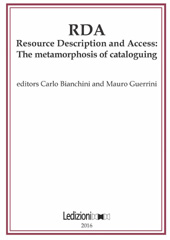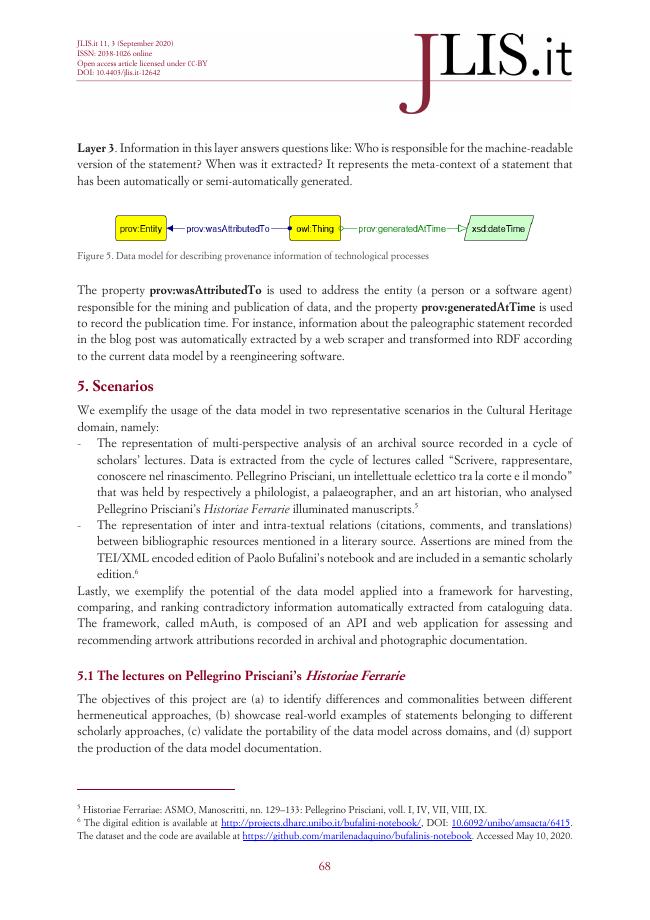Knowledge Representation of digital Hermeneutics of archival and literary Sources
P. 59-76
Scholarly analysis of archival, library, and literary sources results in a variety of digital artefacts meant to foster knowledge discovery and new research enquiries. Guidelines and standards to formally represent disciplinary information are available (e.g. XML schemas, ontologies, vocabularies). However, digital artefacts rarely address reusable structured information on the hermeneutical approach adopted by scholars when validating hypotheses. As a consequence, reproducibility and assessment of research results is hampered, and comparing online contradictory information is still a hard task. In this work we show how to leverage Semantic Web technologies in a high-level, portable data model for representing hermeneutical aspects related to cross-disciplinary analysis of archival and literary sources. We showcase three representative scenarios in the Cultural Heritage domain where the model is applied, and we describe benefits and limits of our solution. [Publisher's text]
-
Articoli dello stesso fascicolo (disponibili singolarmente)
-
Informazioni
Codice DOI: 10.4403/jlis.it-12642
ISSN: 2038-1026
PAROLE CHIAVE
- Digital hermeneutics; Semantic Web; Data model; Archival linked data; Library linked data



